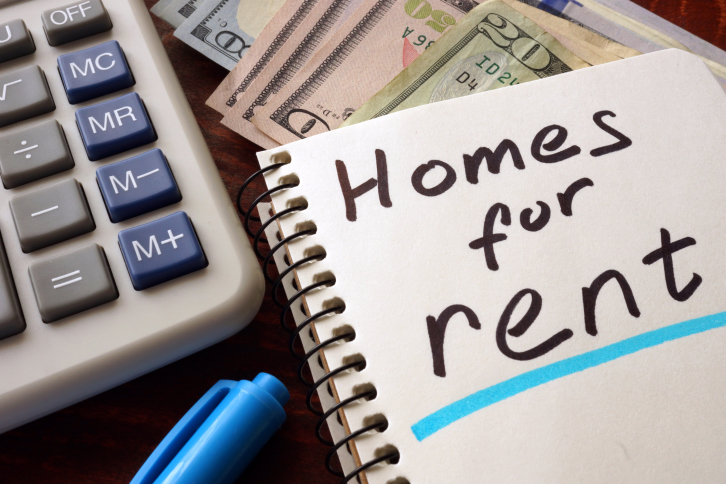 Are you planning on using a mortgage to help cover the cost of a new home? If so, you will want to prepare your finances and figure out how you will manage all those wallet-draining monthly expenses. Let’s take a look at how to run a quick financial health check to ensure you are ready to apply for a mortgage.
Are you planning on using a mortgage to help cover the cost of a new home? If so, you will want to prepare your finances and figure out how you will manage all those wallet-draining monthly expenses. Let’s take a look at how to run a quick financial health check to ensure you are ready to apply for a mortgage.
Update (Or Start) Your Monthly Budget
First, it is essential to get the basics out of the way. If you haven’t already, it’s time to start a monthly budget to keep track of your income and expenses. Once you have a mortgage, it will be important to prioritize your monthly payments so that you don’t end up falling behind.
Starting a budget is easy and can be done with mobile apps, software, a spreadsheet or a pen and paper. List all sources of income so that you know exactly how much cash you are working with. Then, list out every one of your expenses. It can be tough to remember them all, so consider using debit and credit card statements from the past few months as a reminder.
Get A Copy Of Your Credit Report
Next, you will want to get a copy of your credit report so you can see what potential mortgage lenders will see when assessing your financial history. This is a free service that you can request once per year, so be sure to take advantage. Note that you will want to use government-approved websites for requesting your credit report. Be wary of scams.
Do You Have A Down Payment?
A down payment is not required for every home purchase, but having one saved up can make the buying process easier. The amount you will want to have saved up will depend on the cost of your home, whether you plan on carrying private mortgage insurance and a variety of other factors. If possible, try to save up an amount close to (or more than) twenty percent of the home’s purchase price.
Ready? Chat With A Professional
Now that you have run a quick financial health check, it is time to meet with a mortgage professional to discuss your options.
 If you’re at the stage in life where home ownership is nearly within your reach, you’re probably wondering whether you should start looking for a home or whether you should just keep renting. Renting is easier, people say, and it gives you more mobility. But over the long term, all that rent money can really add up – and it eventually reaches a point where buying a home is a better deal.
If you’re at the stage in life where home ownership is nearly within your reach, you’re probably wondering whether you should start looking for a home or whether you should just keep renting. Renting is easier, people say, and it gives you more mobility. But over the long term, all that rent money can really add up – and it eventually reaches a point where buying a home is a better deal. Ask any friend or family member that owns a home and they will share that it takes a bit of management to keep all the expenses under control. Let’s explore the concept of PITI and why it is vital to have a clear picture of how much your home is costing you each month.
Ask any friend or family member that owns a home and they will share that it takes a bit of management to keep all the expenses under control. Let’s explore the concept of PITI and why it is vital to have a clear picture of how much your home is costing you each month. Are you starting to tire of paying your monthly rent to someone and never building any equity? Renting forever can be a significant pain, especially as you’re contributing to someone else’s financial well-being. The good news is that there are affordable real estate options out there for those investing in their first home. Below we will share a few excellent reasons why an apartment or condo might be the best choice for a first-time home buyer.
Are you starting to tire of paying your monthly rent to someone and never building any equity? Renting forever can be a significant pain, especially as you’re contributing to someone else’s financial well-being. The good news is that there are affordable real estate options out there for those investing in their first home. Below we will share a few excellent reasons why an apartment or condo might be the best choice for a first-time home buyer. Whether you’re a first-time homebuyer or an experienced real estate investor, if you are planning to borrow funds to buy a home you will want to choose the right mortgage product. In today’s blog post we’ll explore how interest-only mortgages work and why they’re the perfect choice for some homebuyers.
Whether you’re a first-time homebuyer or an experienced real estate investor, if you are planning to borrow funds to buy a home you will want to choose the right mortgage product. In today’s blog post we’ll explore how interest-only mortgages work and why they’re the perfect choice for some homebuyers. Does the thought of repaying your mortgage for the next twenty-plus years leave you feeling a little down? Whether you’ve had your mortgage for weeks or years, accelerating your payments is an excellent option that can help get your mortgage fully paid off in a shorter time frame. Let’s explore three great reasons to accelerate your payments so that your mortgage debt is paid down faster.
Does the thought of repaying your mortgage for the next twenty-plus years leave you feeling a little down? Whether you’ve had your mortgage for weeks or years, accelerating your payments is an excellent option that can help get your mortgage fully paid off in a shorter time frame. Let’s explore three great reasons to accelerate your payments so that your mortgage debt is paid down faster. In these days of low interest rates, it can be a great idea to get into the real estate market and invest in a home. However, if you don’t have the funds saved up to buy a home outright, it may seem like more of a burden than it’s worth. The good news is that you might qualify for a mortgage loan, which tends to come with more favorable terms than a traditional bank loan. Here are three reasons why a mortgage might just be the best money you ever borrow.
In these days of low interest rates, it can be a great idea to get into the real estate market and invest in a home. However, if you don’t have the funds saved up to buy a home outright, it may seem like more of a burden than it’s worth. The good news is that you might qualify for a mortgage loan, which tends to come with more favorable terms than a traditional bank loan. Here are three reasons why a mortgage might just be the best money you ever borrow. If you’re planning to complete some renovations on your home before putting it on the market, you may be unsure of the best way to go about finding the right contractor for the job. While there are probably many contractors available who can do your renovations right, here’s how you can get to the bottom of who will work the best for you.
If you’re planning to complete some renovations on your home before putting it on the market, you may be unsure of the best way to go about finding the right contractor for the job. While there are probably many contractors available who can do your renovations right, here’s how you can get to the bottom of who will work the best for you. There is so much to know when it comes to homeownership that even wading into all of the information can seem overwhelming, but if there’s one thing you need when the time comes to purchasing a home, it’s to be prepared. Here are a few ways that you can ensure you’re ready for what a mortgage entails so that buying your dream home will be a positive experience you won’t regret.
There is so much to know when it comes to homeownership that even wading into all of the information can seem overwhelming, but if there’s one thing you need when the time comes to purchasing a home, it’s to be prepared. Here are a few ways that you can ensure you’re ready for what a mortgage entails so that buying your dream home will be a positive experience you won’t regret. A mortgage application is typically several pages in length, and it requires you to provide a considerable amount of information about your personal, professional and financial life. Some mortgage applicants may not have access to all of the information when completing the application, and others may simply skim over the form and provide incomplete answers. These are only a few of the reasons why information on the mortgage application may not be accurate, but there are several key reasons why applicants should avoid giving inaccurate information.
A mortgage application is typically several pages in length, and it requires you to provide a considerable amount of information about your personal, professional and financial life. Some mortgage applicants may not have access to all of the information when completing the application, and others may simply skim over the form and provide incomplete answers. These are only a few of the reasons why information on the mortgage application may not be accurate, but there are several key reasons why applicants should avoid giving inaccurate information.